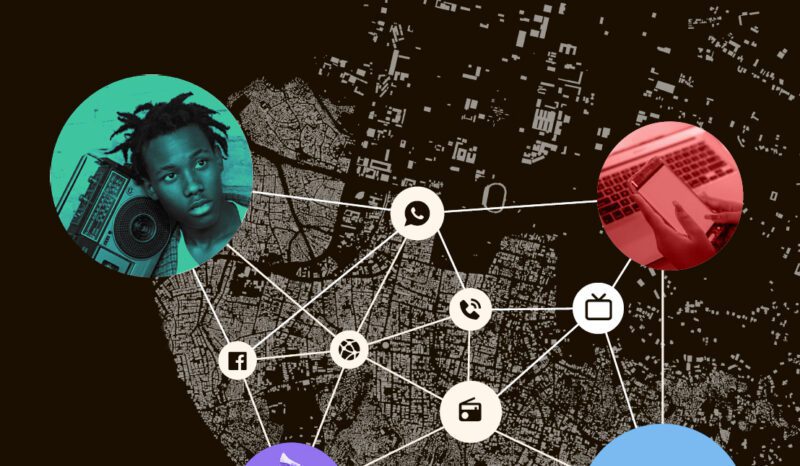The Information Ecosystem Assessment (IEA) is a study designed to understand the dynamics of transmission, production, and consumption of information in a given environment. Understanding the flow of information, its sources, channels, and the factors that affect it – intentionally or unintentionally– can help to empower citizens to make better-informed decisions, bridge divides, participate more fully in their communities, and hold power to account.
This study attempts to answer questions of access to information, the tools used, how information is shared, what information is trusted and used, and what type of information is needed by the selected communities and sub-groups. In an environment with a difficult political, economic, and social context such as Haiti, it is vital to understand these issues in order to protect life, and societal functioning. To that end, Internews, in collaboration with Panos Caribbean, assessed the information ecosystem in the Port-au-Prince area of Haiti, which has an estimated 2020 population of 2.78 million people. This study also included residents of Croix-des-Bouquets, totaling an estimated population of 3.2 million people.
Data was collected using a mix of methodologies which were adapted in light of COVID-19 to follow the World Health Organization’s recommendations of social distancing, as well as restrictions imposed by the state of emergency decreed by the government of Haiti. The results are based on quantitative data obtained through two distinct surveys, and qualitative data collected through focus groups and key informant interviews with residents in the metropolitan area. Furthermore, these provide an overview of information and disinformation flows, consumption trends and needs, as well as issues/topics that are most important to the residents of Port-au-Prince.
Read the full Port-au-Prince Information Ecosystem Assessment
